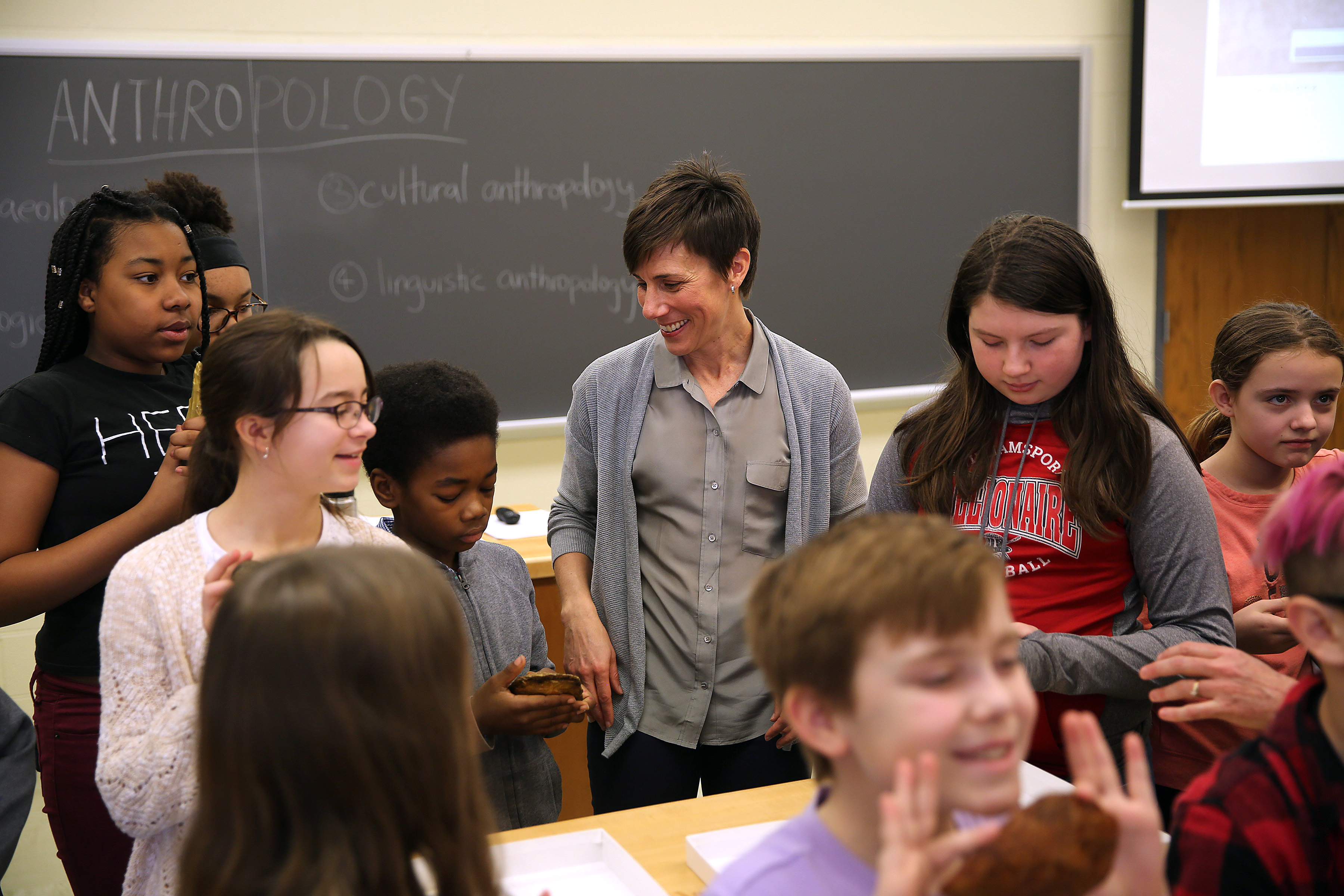
Download Image: Web
Pi Day - March 14, Curtin Intermediate and Lycoming Valley Intermediate students celebrated in the best possible way: with science. The local students, in grades 4 through 6, partnered with science professors at Lycoming College for a day of science exploration and review.
The children who participated in the trip are involved with a group called Frontiers for Young Minds, a collaboration project in which young reviewers practice the peer editing process of articles in order to give feedback to the authors to make the articles more kid friendly.
Leading the students in discussions and experiments were Jessica Munson (archaeology and anthropology); Bob Smith (biology); and Dave Andrew (biology). These professors are also parents of students in the Curtin and Lycoming Valley school districts. Munson gave a demonstration and talked about ancient technology and stone tools. Andrew spoke to the students about neuroscience, the senses, and how the brain “tricks” us. Smith worked with the students on an experiment involving stream ecology with real bugs.
They also reviewed two journal articles on water density and brain functions that the students had been assigned through Frontiers for Young Minds. The FYM website provides a collection of freely available scientific articles by distinguished scientists that are shaped for younger audiences by the input of their own young peers.
“It was a great experience getting to work with the local students on the Frontiers for Young Minds project! This program empowers students from a young age to develop critical thinking skills by having them serve as peer reviewers for science articles written by researchers for younger audiences,” said Munson. “As their science mentor, my job was convey to the students why this matters—why it is important for scientists to clearly communicate their findings to the wider public and inspire the next generation, and how they as peer reviewers can help the adults do a better job of that. It benefited everyone to have the students on campus, energizing our labs.”